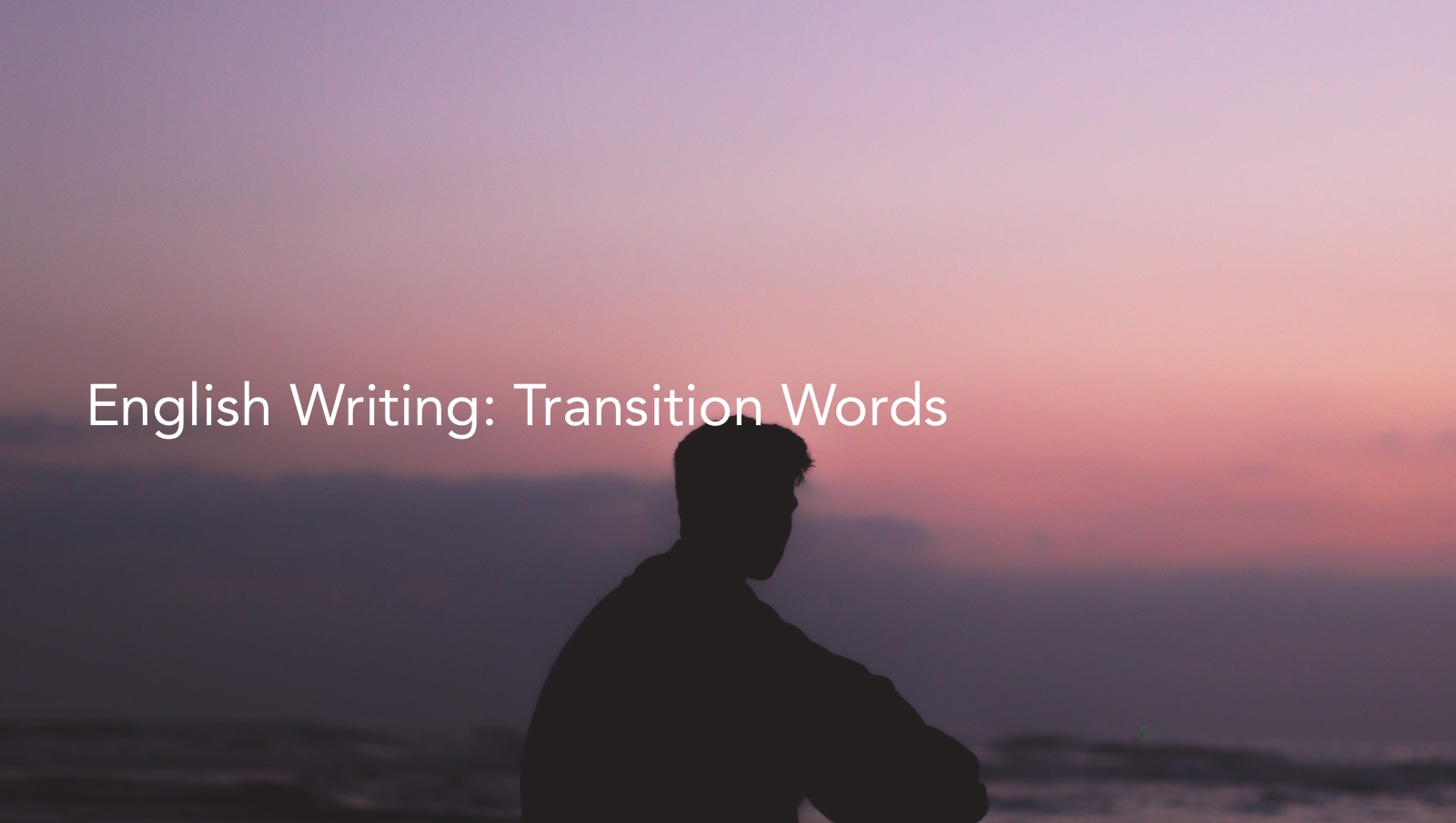English Writing: Transition Words

Have you tried listening to someone express their ideas, but you can’t follow what they’re saying because there’s no flow to what they’re saying? Learning transition words will help you avoid that.
Transition means a change from one idea to another idea. Transition words or phrases are essential tools in writing essays, letters, emails, papers, and other literary compositions. They improve the connections and flow (or transitions) between sentences and paragraphs.
So, when do we use these? We use transition words to:
– add information (moreover, in addition, etc.)
– show contrast or opposite ideas (although, however, but, etc.)
– show conditions (if, unless, etc.)
– arrive at a conclusion (therefore, thus, hence, etc.)
What are the main functions of transitions?
They are crucial because they can join ideas within a sentence, but even more so, they join two paragraphs. They bridge two ideas or connect one idea to the next.
They create flow. Flow is significant for writing, whether in English or other languages. It makes it easier for the reader to follow what you’re saying, and it makes your writing more interesting.
In today’s lesson, let’s focus on transition words that are used to add ideas, which means “+”, adding 1 or 2 ideas to what you already said. So, you will always have at least 2 ideas when using these transitions. And note that your ideas MUST be linked or related. There should be something similar between them. The common mistake in writing is that the writer uses these transitions, but actually, they are talking about only one idea. So, the reader will keep reading and reading, expecting to find or read a new idea, but then there’s none.
- In addition to… (The most commonly used)
- Furthermore… (Not too formal)
- Moreover… (Formal)
- Another reason that… (and then add the general idea of your previous sentences/paragraphs)
If you’re going to write a short essay, using in addition and furthermore 2 times is enough. You don’t want to use these in excess because you don’t want to repeat the idea or topic that you already discussed.
Example:
First paragraph
In addition, (explain your idea)
Furthermore, (explain your idea)
In addition, (explain more your ideas)
There’s no hard and fast rule that says you can’t use furthermore in your 2nd and 3rd paragraphs:
2nd paragraph: Furthermore, (explain your idea)
3rd paragraph: Furthermore, (explain more your ideas)
It is not wrong but also not encouraged because it looks repetitive and stylistically not attractive. For a variety of word usage, use furthermore, and then moreover, and then in addition in your writing.
For a more extended essay, you can use all three or four: in addition, furthermore, moreover, and another, if applicable.
This time, let’s see very briefly when to use a transition when connecting paragraphs or in mid-sentence.
EXAMPLE 1
“His brilliant ideas brought success to the project. Furthermore, his great relationship with his team made the board decide to keep him in the company for good.”
Topic (1st idea): brilliant ideas
Add (2nd idea): a great relationship
These are about the same person. The last idea has to join to the first idea stated in the first sentence.
EXAMPLE 2
“Eating vegetables regularly will help improve your health because they are a good source of vitamins and minerals. They lower the risk of chronic diseases and provide nutrients vital for the maintenance of your body.
Furthermore, fruits are also excellent sources of Vit. C and dietary fiber. This helps maintains a healthy gut and prevent digestion problems.”
The topic is ‘good health’. The first paragraph talks about eating vegetables, and the second one talks about fruits — which supports the first paragraph. Both add information about keeping good health.
Learning transitions and using them correctly is very important for TOEFL and IELTS because you will be adding ideas to one topic, making your essay more meaningful.
OTHER EXAMPLES:
1) We serve a regular breakfast, which includes eggs, pancakes, and coffee. In addition, on some days we offer hot cereal and muffins.
2) Having a new baby is a challenge and will add more responsibilities to young parents. Moreover, just being sure that we want to be parents doesn’t necessarily prepare us for parenthood.
3) The hills surrounding the castle served as a natural defense against intruders. Furthermore, it provided a breathtaking view that the dwellers enjoyed by day or night.
